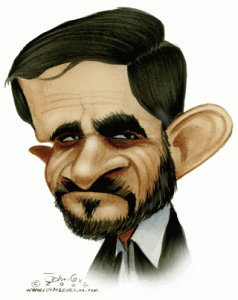A close acquaintance writes from South Africa: “With the unrest in mining, cash flow has gone for a ball of sh-t. No one can hire. Practically all mining has come to a halt. Bloody f-ucking Malema [ANC Youth League president]! Into The Cannibal’s Pot [my 2011 book] says it all. Thank you.”
[SNIP]
I don’t expect Americans to comprehend the loss of South Africa. Americans are, as Pat Buchanan once put it so well, a silly people living through serious times. Other than adjectival overkill (“a deeply silly people in deadly serious times), I’d add to Buchanan’s aphorism that, like Esau did, Americans have squandered their birthright—“the Old Republic of property rights, freedom of association, and radical political decentralization”—and replaced it with a mess of pottage.
Americans, moreover, lack an understanding of the philosophical inheritance they’ve frittered away. How then can such a silly people comprehend the loss of South Africa?
Mining has been “the main driving force behind the history and development of Africa’s most advanced and richest economy.”
Mining is dying in South Africa.
The mining sector is the canary in the proverbial mine.
Barry Downs is an American who knows better. Formerly based in South Africa, this mining sector investor knows a thing or two about what matters and what creates value. He emails with these invaluable insights:
“The mining industry unrest in South Africa is deepening, with militant senior trade unionist even talking about expropriation of assets and nationalization.
Shares of SA gold and Platinum mining companies remain under pressure as many miners remain on strike and non striking miners are being intimidated. The ANC government, meanwhile, appears powerless to turn the deteriorating situation around.
Just think: South Africa, over a 100 year span, produced 41,000 metric tons ( 1.3 billion ounces) of the only real money in the world, i.e., gold, and they still have identified 6,000 metric tons of mineable gold and with some high powered exploration will only increase reserves.
The ANC government and Reserve Bank regime fails to understand that the continuing global economic crisis will ultimately be focused on the global fiat paper money system, which is breaking down, and in the end there will be a massive run from paper and into gold.
There has been talk in this country about the US being eventually forced to stabilize the American economy by backing the dollar again with gold, and they will use the 1933 Bretton Woods formula that came up with $35 an ounce. To come up with the new gold price, they will take the US monetary base, which is $2.7 trillion, and divide it by the US Treasury gold holdings, which is 262 million ounces. The number becomes $10,300 and ounce.
The ANC government, if it had any smarts, should be going everything possible to protect it’s gold mining industry, knowing that future revenues from the industry will likely expand many times over as the gold price rises.
Nationalization will mean that the 6,000 metric tons of gold reserves may never be mined and the industry will just end up closing down. The 1,000 metric tons of gold South Africa produced, annually, 40 years ago, has declined to only 200 tons annually. It may end up at zero. Is it possible that the ANC government will just watch the goose that lays the golden egg killed off?
Given the mentality illustrated throughout your book, Into the Cannibal’s Pot,, I think the answer is yes.”

